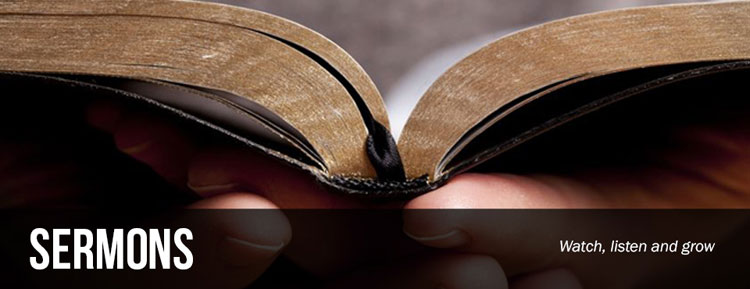
When Does the Rapture Happen? A New Paradigm of Eschatology
By being divided along the lines of pre-tribulation, mid-tribulation and post-tribulation, scholars of eschatology have unwittingly implied that we use the great tribulation as a campus to guide us on where to position rapture, in the continuum of end time events. The result of this debate has been an unresolved argument with many proudly thinking they are right on whatever opinion they hold; while others agree to disagree
The reason why there has been no agreement in this debate for the past few centuries is because the fundamental presumption of the debate, namely, that we use the great tribulation as a reference point for determining when the rapture happens, is fallacious.
A close look at the scriptures reveals that there is an implied campus or reference point given to us in the scriptures to use for positioning rapture in the continuum of end time events, namely, trumpets. Most teachers of rapture over emphasize its suddenness and speed above its timing, yet all the three are given in the same breathe of scripture.
1 Corinthians 15:51-52, NKJV
51 Behold, I tell you a mystery: We shall not all sleep, but we shall all be changed - 52 in a moment, in the twinkling of an eye, at the last trumpet. For the trumpet will sound, and the dead will be raised incorruptible, and we shall be changed.
The phrase, "at the last trumpet," is loaded with information pertaining to the position of rapture in the continuum of end time events. It therefore requires to be emphasized in equal measure! By saying it happens at the last trumpet, it is presupposed that:
a) Paul is not the first to speak of trumpets in relation to end times given that he uses a definite article ("the last trumpet" not
"a last trumpet");
b) There will be a series of trumpets to be sounded - the 1st, 2nd, 3rd, ..... the last;
c) The sounding of each of each trumpet provokes an action;
d) The action provoked by the last trumpet is rapture.
Since Paul uses a definite article when referring to the last trumpet, then he is referring to the teachings of Christ (since no earlier letter of his details them. In the same way, he uses the definite article when he refers to "the great backsliding (2 Thessalonians 2:3)," which is traceable only in Christ's teachings ("because lawlessness the love of many will grow cold" Matthew 24:12)). Christ speaks of trumpets to be used by angels for the purpose of gathering the elect, after He is seen coming on the clouds.
Matthew 24:29-31, NKJV.
29 "Immediately after the tribulation of those days the sun will be darkened, and the moon will not give its light; the stars will fall from heaven, and the powers of the heavens will be shaken. 30 Then the sign of the Son of Man will appear in heaven, and then all the tribes of the earth will mourn, and they will see the Son of Man coming on the clouds of heaven with power and great glory. 31 And He will send His angels with a great sound of a trumpet, and they will gather together His elect from the four winds, from one end of heaven to the other."
These trumpets are clearly not referring to those of the Jewish feast of trumpets nor are they akin to any other Old Testament shadow of things to come, since in these cases, they were blown by men for their defined purposes. But here, the trumpets:
a) Are to do with end time events
b) Are blown by angels not men
c) Have a definite purpose of gathering the elect.
The gathering of the elect cannot be defined to exclude rapture (if it means anything, it means rapture).
Paul avers that the trumpets relating to the rapture are different because they are blown by angels not men:
1 Thessalonians 4:16-17, NKJV.
16 For the Lord Himself will descend from heaven with a shout, with the voice of an archangel, and with the trumpet of God. And the dead in Christ will rise first. 17 Then we who are alive and remain shall be caught up together with them in the clouds to meet the Lord in the air. And thus we shall always be with the Lord.
Further understanding concerning these end time trumpets is unveiled when we see John, in Revelation 6:12-19;7:1-3, revealing that, when Christ appears on the clouds, at the opening of the sixth seal, angels will be sent to the four corners of the earth (this is exactly the same way Jesus taught as seen in Matthew 24:29-31); after which there will be seven angels each with a trumpet to blow; provoking a specific occurrence on earth at each sounding. To remove any shadow of doubt that would arise to suggest that Paul's last trumpet may not be the same as John's last (seventh) trumpet, John corroborates as follows:
Revelation 10:5-7, NKJV.
5 The angel whom I saw standing on the sea and on the land raised up his hand to heaven 6 and swore by Him who lives forever and ever, who created heaven and the things that are in it, the earth and the things that are in it, and the sea and the things that are in it, that there should be delay no longer, 7 but in the days of the sounding of the seventh angel, when he is about to sound, the mystery of God would be finished, as He declared to His servants the prophets.
Any possible shadow of doubt is removed by the fact that there is no mystery spoken of in the scriptures that is related to the sounding of a trumpet apart from rapture. Therefore, Paul's last trumpet is John's 7th trumpet in the Book of Revelation and that is when the rapture takes place.